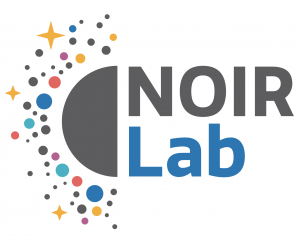Podcaster: Rob Sparks. Guest: John Blakeslee

Title: NOIRLab – Resolving A Discrepancy In The Hubble Constant
Organization: NOIRLab
Links: https://www.facebook.com/NOIRLabAstro ; https://www.instagram.com/noirlabastro/ ; https://www.youtube.com/noirlabastro ; @NOIRLabAstro
Link to the news: https://noirlab.edu/public/news/noirlab2123/ ; https://noirlab.edu/public/blog/hubble-constant-result/
Description:
Modern astronomical cameras capture data in a format called a FITS (Flexible Image Transport System) file. FITS files cannot be opened by many common image processing programs. FITS Liberator 4 is a program that opens FITS files and saves them in a format the can be opened and manipulated by common image processing programs. In this podcast, Robert Hurt (IPAC) talks about FITS files, the history of FITS Liberator, how you can use FITS Liberator 4 to create your own images and some sources of astronomical data.
Bio: Rob Sparks is a science education specialist in the Education and Public Outreach (EPO) group at the National Optical Astronomy Observatory (NOAO) and works on the Galileoscope project (www.galileoscope.org), providing design, dissemination and professional development. He blogs at halfastro.wordpress.com.
John Blakeslee is an Astronomer at NSF’s NOIRLab studying galaxies, galaxy clusters, and the expansion of the universe. He completed his PhD at MIT, followed by a postdoctoral fellowship at the California Institute of Technology. Dr Blakeslee has worked as a Research Scientist with the Hubble Space Telescope’s Advanced Camera project at Johns Hopkins University, a faculty member at Washington State University, a Staff Astronomer with the Canadian National Research Council in Victoria, British Columbia, and the Chief Scientist of Gemini Observatory. In addition to doing research, he now serves as the Head of Science Staff for Observatory Support at NOIRLab.
End of podcast:
365 Days of Astronomy
=====================
The 365 Days of Astronomy Podcast is produced by Planetary Science Institute. Audio post-production by Richard Drumm. Bandwidth donated by libsyn.com and wizzard media. You may reproduce and distribute this audio for non-commercial purposes.
This show is made possible thanks to the generous donations of people like you! Please consider supporting to our show on Patreon.com/365DaysofAstronomy and get access to bonus content.
After 10 years, the 365 Days of Astronomy podcast is poised to enter its second decade of sharing important milestone in space exploration and astronomy discoveries. Join us and share your story. Until tomorrow! Goodbye!Toggle panel: Podcast Episode

